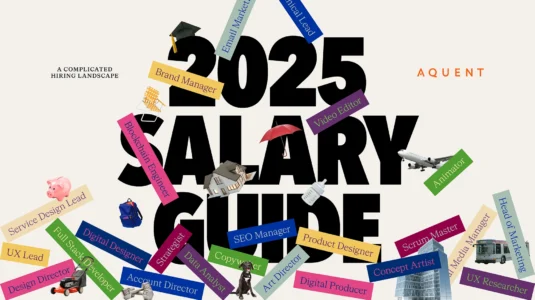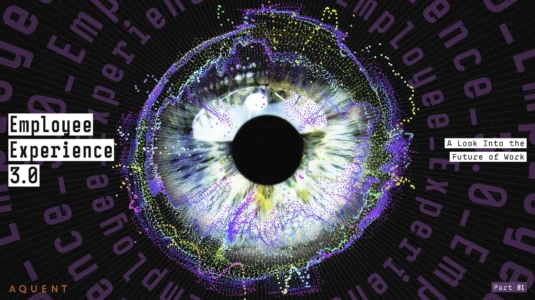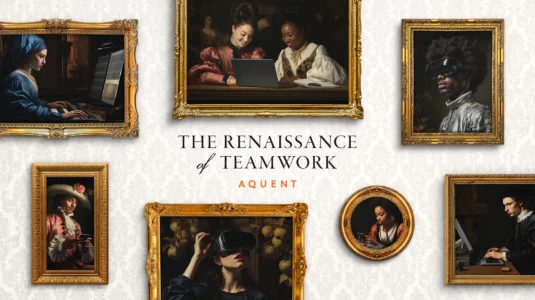

Key Takeaways
- Talent acquisition experts have noted an active resurgence in hiring activity in 2024, signaling an uptick in job opportunities.
- Expediting interviews has become important for attracting top talent as candidates have multiple offers. Long processes can result in losing candidates.
- Permanent placement and temp to hire roles are subtly shifting as businesses require flexibility while employees seek stability.
- Developing Artificial Intelligence (AI) skills and competencies is critical for roles in marketing, content creation, and data analysis.
- Marketing and digital jobs are on the rise across industries as creativity merges with platforms and strategies, rather than signaling a creative downturn.
Listen: Top 5 hiring trends in 2024 from expert recruiters you need to know.
As we navigate the dynamic tides of 2024, the hiring landscape continues to evolve. Today, we bring together the insights of four seasoned recruitment leaders in the marketing, creative, and design space: Maggie Patterson, Lauren Monroe, Mark Brim, and Maggie Keeton. Read on for the top five hiring trends in 2024.
The resurgence of hiring activity in the 2024 market
The recruitment landscape is being reshaped by a resurgence in hiring activity. This trend is underscored by insights from industry expert Lauren Monroe, who notes an uptick in job openings.
Monroe's observations align with research indicating that a significant percentage of hiring leaders are planning to increase their financial commitment to recruitment this year. LinkedIn's Jobs on the Rise report further supports this, revealing a shift in the types of roles employers are looking to fill, many of which didn't exist in previous years.
Industry experts Maggie Keeton and Mark Brim have echoed this sentiment, stating that many agency clients of Aquent's are actively posting for open positions within their companies. Surprisingly, there seems to be a shift in the types of roles being posted. More marketing roles are appearing compared to creative roles, irrespective of the industry.
This trend was evident in 2023, when more than half of the roles worked by Aquent's Direct Hire Consultants (DHCs) fell within the marketing / digital marketing space. There has been a slowdown in traditional creative roles like Creative Director, UX Designer, and Graphic Designer.
However, this doesn't signal a downturn in the creative industry but rather a shift in focus towards merging creativity with digital platforms and marketing strategies.
The importance of expedited interviews: Attracting top talent in talent acquisitions

In the current dynamic job market, expediting the interview process has emerged as a critical strategy for attracting top talent. A study by EBC Associates suggests that interview processes should ideally last no longer than 3-4 weeks. Delayed decision-making can result in losing potential candidates to competitors that move faster.
Mark Brim notes that one of the key reasons behind this trend is the shift in power dynamics in the job market. With many opportunities available, top candidates often have multiple offers to consider. A streamlined and efficient interview process can give companies a competitive edge by reducing wait times for candidates, thereby improving their overall experience.
Maggie Keeton highlights the importance of creating a recruiting system that is effective and streamlined. This not only helps attract the right talent but also enhances an organization's reputation as an employer. She anticipates that companies are beginning to realize that long interview processes are no longer an option. Her experience shows that companies with 4+ hiring steps are realizing top talent will not wait so long, especially when they are interviewing elsewhere.
Expedited interviews are a strategic tool for attracting top talent in today's competitive job market. They not only enhance the candidate experience but also help organizations position themselves as desirable places to work.
Evolving roles and the impact of permanent placements
The landscape of employment types—permanent placements, temp to hire roles, and freelance positions—is subtly shifting. Maggie Keeton notes a predicted uptick in perm hiring in 2024.
Keeton and Brim emphasize that hiring permanent positions has significant advantages despite the upfront investment and commitment. It not only strengthens company culture but also boosts employee loyalty and retention rates due to clear career growth paths and job security. Furthermore, since permanent hires frequently have access to training and development opportunities, they draw highly qualified applicants looking for long-term jobs, which fosters innovation and business expansion.
However, achieving an optimal balance with other hiring strategies is crucial. Alternatives like temporary staffing or freelance hires suit short-term, part-time, or project-based needs, according to Lauren Monroe. They also allow companies to scale their teams up and down as business conditions change. Contract-to-hire (also known as temp to hire) is an approach that provides a trial period for employers and new hires to evaluate fit. When trust and transparency are established, these alternatives can foster loyalty and secure long-term talent.
The imperative of training employees on AI skills
As hiring managers or business leaders, it's crucial to recognize that the candidates you seek must be engaged in upskilling—actively pursuing new knowledge and skills pertinent to their field. It's not just about keeping up with current trends; it's about foreseeing future needs and preparing for them.
One trend that is progressively influencing the job market is the rise of AI. As organizations across various sectors utilize AI to produce content, enhance operations, elevate customer service, and facilitate data-driven decisions, the demand for professionals adept in this field grows.
AI proficiency is becoming essential in marketing and creative industries. Marketers using AI for personalized customer experiences often excel, and creatives leveraging AI tools can gain a competitive edge.
There's growing demand for roles that engage with AI within these fields, such as data-driven Marketing Analysts and AI-based Content Strategists. These roles require advanced AI skills like prompt engineering, data analysis, and machine learning.
The integration of AI in these fields augments human creativity with machine efficiency, enabling personalized marketing and efficient audience engagement. It's an exciting time for professionals to embrace AI to elevate their work.
However, it's essential to understand that AI is not about supplanting human skills, but enhancing them. Soft skills like critical thinking, creativity, and emotional intelligence remain vital. In fact, as AI takes over more routine tasks, these uniquely human skills are becoming more valuable.
When seeking potential candidates, look for those who adopt a dual approach to learning new skills: acquiring a robust understanding of emerging technologies like AI, while also refining their soft skills that machines cannot replicate. This blend of skills can make them more resilient, adaptable, and attractive candidates in the evolving job market.
Remote and hybrid work

The future of work continues to be a hot topic in 2024. Maggie Keeton expects companies to lean toward on-site or hybrid models, with many businesses resisting the idea of going fully remote.
On the other hand, Maggie Patterson notes that employees continue to favor remote work and flexible schedules. She also sees an increased reliance on technology in recruitment, a focus on upskilling due to evolving job demands, and a sustained commitment to diversity and inclusion initiatives.
Despite a potential slowdown in companies going remote, Patterson predicts continued employee emphasis on remote opportunities. Clearly, a combination of remote, hybrid, and on-site models will shape the workplace of the future.
Hiring in the New Year
It is imperative to remain ahead of the curve when it comes to major hiring trends in 2024, including remote work, technology integration, upskilling, and diversity initiatives.
The rise of remote work and the continued demand for flexibility are reshaping how businesses operate and recruit. Companies that leverage technology in their recruitment strategies and prioritize upskilling their teams will likely have an edge in this dynamic landscape.
Equally important is the emphasis on diversity, equity, and inclusion in the workplace. With the advent of remote work, companies have access to a global talent pool, enabling them to build diverse and inclusive teams. Meanwhile, the hybrid work model could potentially offer the best of both worlds, providing flexibility while maintaining structure.
Active hiring is seeing a resurgence in 2024, especially in marketing roles. However, the competition for top-tier talent is intensifying, prompting businesses to streamline their hiring processes and expedite interviews.
There's also a notable shift in the balance between permanent positions and temp-to-hire or freelance roles. While permanent hiring requires an initial investment, its benefits, such as greater control over recruitment and smoother integration into company culture, make it a worthwhile strategy.
As we look forward to the rest of 2024 and beyond, these insights will be invaluable for hiring managers and business leaders making recruitment decisions. Adapting to these changes, embracing new technologies, prioritizing learning opportunities, and fostering a diverse and inclusive work environment are all crucial steps toward future success.
We'd like to extend our thanks to our contributors—Maggie Patterson, Lauren Monroe, Mark Brim, and Maggie Keeton—for their invaluable insights. Stay tuned for more expert perspectives on the changing dynamics of the job market.
Related

Great brand collaborations are the best to strengthen identity.
Design & Experience, Insights & Trends, Marketing & Creative, Beauty and Fashion

Consumer demand and policy are driving EV market growth.
Development & Technology, Insights & Trends, Automotive

Are you missing opportunities to improve health screenings?
Design & Experience, Marketing & Creative, Health


